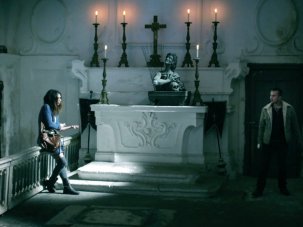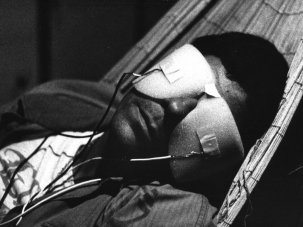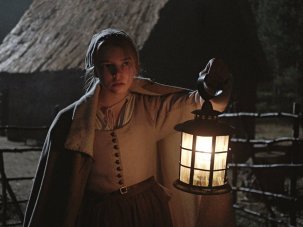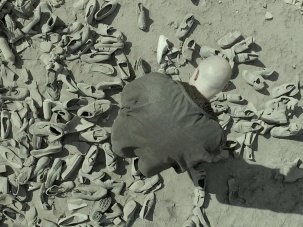Over the past six years, American filmmaking duo Justin Benson and Aaron Moorhead have created an original body of work that crosses rigid genre boundaries. Inhabiting a Lovecraftian territory of otherworldly strangeness, their films simultaneously probe unfathomable cosmic mysteries and human emotional reality. Their impressive directorial debut Resolution (2012) focused on a city professional who forcefully tries to save his self-destructive junkie friend, which is observed within a mind-bending narrative framework generated by an unseen entity. They followed it up with Spring (2014), an uneasy exploration of love, rebirth and the troubling otherness of the female body inscribed within the weird wonders of nature’s workings.
The Endless is now in UK cinemas and available on DVD, Blu-ray and digital download, and is reviewed in the July 2018 issue of Sight & Sound. Both The Endless and Spring are available to rent on BFI Player.
Their latest, The Endless, loops back to Resolution, centring on two minor characters from the earlier film. After escaping the ‘UFO death cult’ in which they grew up, brothers Justin and Aaron (played by Benson and Moorhead) are trapped in dead-end jobs in Los Angeles. The older Justin is glad to be free of the cult’s thought control, but the discontented Aaron remembers life in the commune with fond nostalgia.
The arrival of a videotape bearing a cryptic message from a cult member prompts Aaron to go back to the commune for a visit, and Justin reluctantly accepts to accompany him. Initially, life on the commune appears blissful, but soon there are hints of arcane secrets and unknown forces at play. Ambitiously expanding on Resolution, Benson and Moorhead build a vertiginous world of time loops, mirrored planes and perceptual uncertainties that conjure up the impenetrable mystery of life, firmly anchoring their tale in an exploration of the nature of family and brotherly bonds.

Director-stars Justin Benson (left) and Aaron Moorhead (right) in The Endless
Was the idea to reconnect with the world from Resolution there from the very beginning?
Aaron Moorhead: The movie can very clearly be enjoyed on its own, because there was no reason to make a sequel to what was a very small release. Artistically we would also feel very insular and obsessed with ourselves if we thought that that was a good idea. But there is a deep mythology to our first movie that we still wanted to explore, and we kept on thinking about the characters; it was haunting us a little bit.
We decided we couldn’t just make a self-reliant movie, but it also remained that we could not revisit or even expand the world without repeating ourselves, which is in many ways the theme of the movie. So we made a movie about making this movie and returning to this mythology.
Both Resolution and The Endless have a self-reflexive aspect, both in their connection to each other, but also in the fact that they include videotapes and photos.
Justin Benson: That self-reflexive part is unconscious; it’s a product of other decisions that are made. The idea is, what if you were watching a film, and at the end you realised that you had just seen everything from the point of view of a god-like, older-than-men antagonist who operates using recordable media? It starts with this high-concept, goose-bump sci-fi idea, but obviously there’s a heavy meta component to that, which is unconscious.
In The Endless you also have this room full of old film reels and tapes. Old formats are seen either as objects or as films within the film. There’s something about that that is the equivalent of a creepy doll or a snake. It makes people feel uneasy and creeped out. Maybe it’s because recorded media is the only thing we have that is a confirmed ghost.
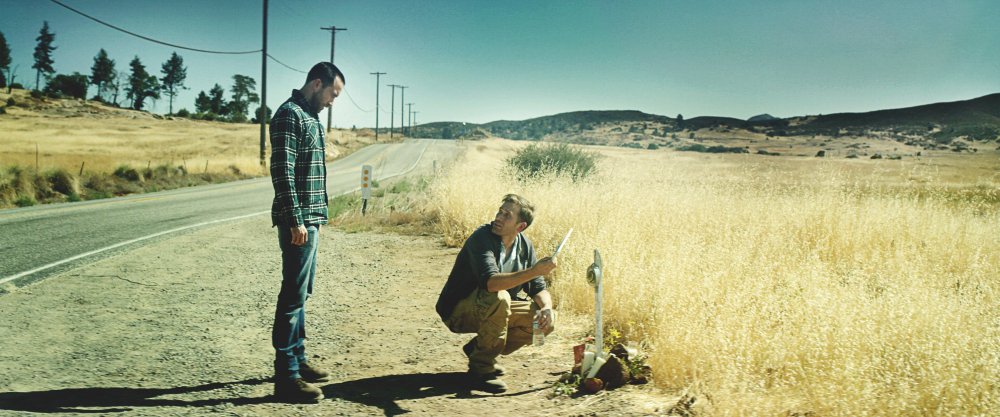
The Endless (2017)
The sense of existential dread connected to an unseen force that is central to both Resolution and The Endless is very Lovecraftian.
AM: This is very embarrassing but when we started making movies we didn’t even know who H.P. Lovecraft was. But the people who we were reading, like Stephen King and Alan Moore, all read Lovecraft. So we were unconsciously influenced by Lovecraft. We’ve read a little bit more Lovecraft now, but we weren’t trying to take anything directly from him as much as capturing the cosmic fear that he has, the idea of the unknown being more frightening than the things that you do know. That’s why in many of our movies a lot of things happen off-screen or are implied by other events that are on-screen.
JB: The reason why our movies are called Lovecraftian goes beyond the idea of the fear of the unknown. It’s also that there’s something evil and dangerous that is too old to comprehend. It can’t be the Devil because we know where the Devil comes from. We understand that mythology, but it’s older than that. It’s dramatised more in Resolution, whereas in The Endless people feel the ancient, unknowable god-like antagonist without dramatising it as much.
The other thing is that it’s personified in [commune leader] Hal. Hal feels he’s getting closer to explaining this thing using mathematics, and I think that’s something that Lovecraft did really well ahead of his time, explaining the supernatural, the otherworldly, with an interesting scientific idea.
Did you mean to deliberately challenge preconceived ideas about cults in The Endless?
AM: Yes, because the movie is not really about cults at all, it’s more how a cult relates to anti-conformity. We liked the idea of playing with audience expectations, with the fact that the cult has a secret but it’s not what people are going to think, and that has another layer, to do with family dynamics and authority.
Some people ask how much research we did on cults. We watched a couple of documentaries, looked at Wikipedia and watched Deprogrammed. But it wasn’t so much to inform what we were doing as much as it was to make a long list of what people think cults are and then do as little of it as possible.
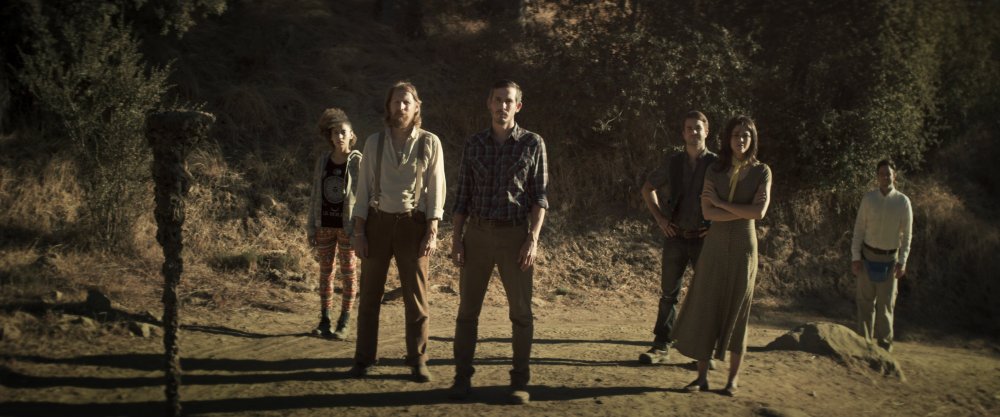
The Endless (2017)
How do you feel you have explored ideas of authority and conformity in your films?
JB: We worked on a movie about Alesteir Crowley for two years but it didn’t quite get off the ground and it’s now a TV show. The story is about the virtues of being rebellious, and also about where rebellion goes wrong, when it is the incorrect thing to do.
We had several projects that had the same theme that weren’t quite getting off the ground. We wanted to tell a story exploring conformity, and we could finally dramatise it in The Endless, with the hierarchy in the relationship between the two brothers, and the cult, which obviously is about conforming.
AM: Resolution was even more directly about control and anti-control; it was about people trying to control their own situations and their friends, and maybe they should just let them be. In Resolution the antagonist is all about control, and both of the main characters have their own issues with control.
That still comes into play in The Endless, but less so, because the cult members don’t want to have control, it’s actually about choice in many ways. Justin’s character is definitely about control whereas Aaron’s character is absolutely after autonomy.
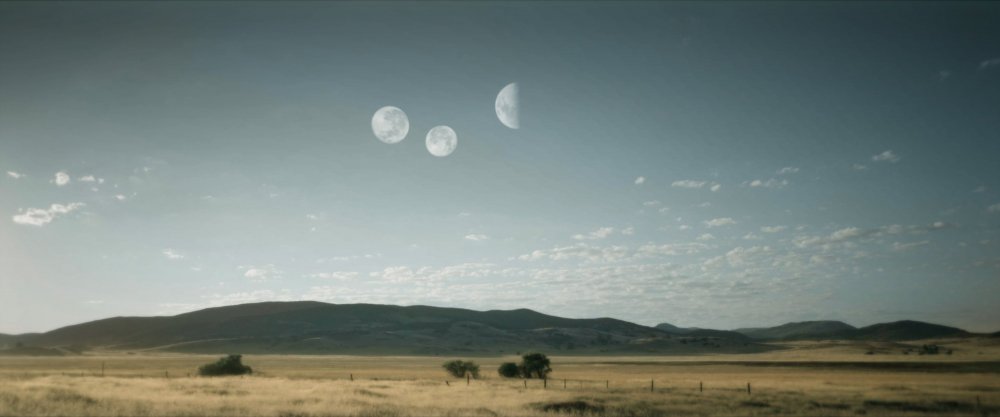
The Endless (2017)
You create a real sense of mystery with very minimal means. The strange mineral growths that pop up in the landscape are particularly striking and effective.
JB: The idea behind that was that there is some real-life force creating the time loops, an ancient otherworldly antagonist governing all this. We wanted there to be the suggestion that there is a primordial force in the geology of the region connected to all of this, so that you think these things are spawned by volcanic eruptions, and they serve as the markers of what’s happening.
It’s the same idea as the spirals in Sedona, Arizona. People call them power vortices: it’s a mystery how that happened. The things in The Endless don’t actually exist, but they seem to be within the realm of possibility. That idea of a haunted geology was also inspired by Stephen King’s Desperation.
You are generally interested in loops, in the idea of circular, repetitive time, whether it’s in the connection between Resolution and The Endless or thematically within each film.
JB: I don’t remember where that playing with time comes from. Since we’ve made The Endless, I’ve been noticing more and more where I’ve been getting information about time loops. One place is The Tibetan Book of the Dead, which explains reincarnation, and there’s a similar thing in Eternalism, which is the belief that since the fourth dimension is a directionless factor, time isn’t as we experience it, everything is actually happening simultaneously, and you live your life unconsciously over and over because there’s no place for it to go.
That was an idea expressed by Alan Moore in a podcast that I heard after we made this movie, and I realised that there actually is a spirituality connected to science. Much older spiritualities that believe in reincarnation have this idea of loops where you live your life over and over, and every time you try to do it better. I think that’s very similar to what happens to the two characters in Resolution, the idea of trying to do things the right way to be able to get into this other world.
-
The Digital Edition and Archive quick link
Log in here to your digital edition and archive subscription, take a look at the packages on offer and buy a subscription.







